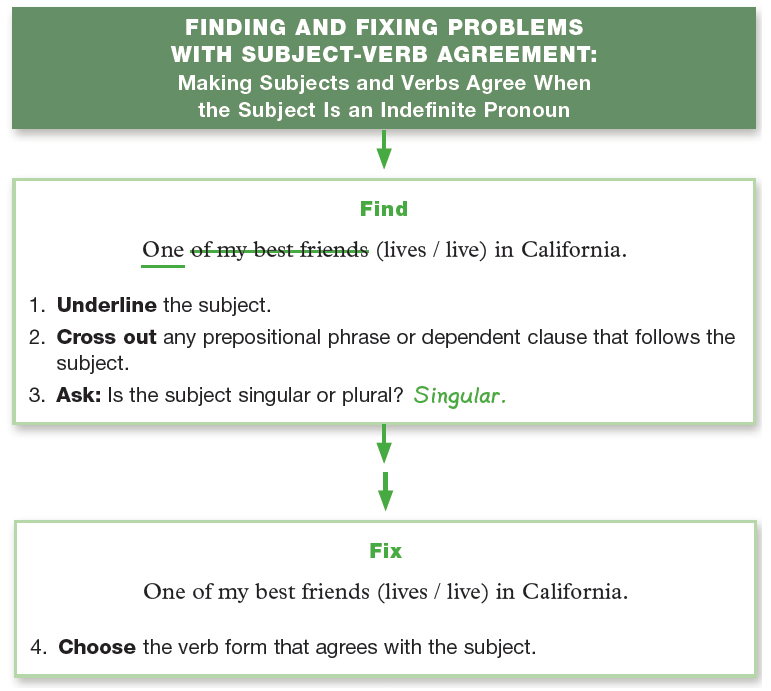4. The Subject Is an Indefinite Pronoun
An indefinite pronoun replaces a general person, place, or thing or a general group of people, places, or things. Indefinite pronouns are often singular, although there are some exceptions, as shown in the chart on the next page.
Remember that the verb of a sentence must agree with the subject of the sentence, and the subject of a sentence is never in a prepositional phrase or dependent clause.
Indefinite Pronouns
| ALWAYS SINGULAR (USE THE IS FORM OF BE) | ||
|---|---|---|
| anybody | everyone | nothing |
| anyone | everything | one (of ) |
| anything | much | somebody |
| each (of ) | neither (of ) | someone |
| either (of ) | nobody | something |
| everybody | no one | |
| ALWAYS PLURAL (USE THE ARE FORM OF BE) | ||
| both | many | |
| few | several | |
| MAY BE SINGULAR OR PLURAL (USE THE IS OR ARE FORM OF BE) | ||
| all | most | some |
| any | none | |

[Leave] [Close]